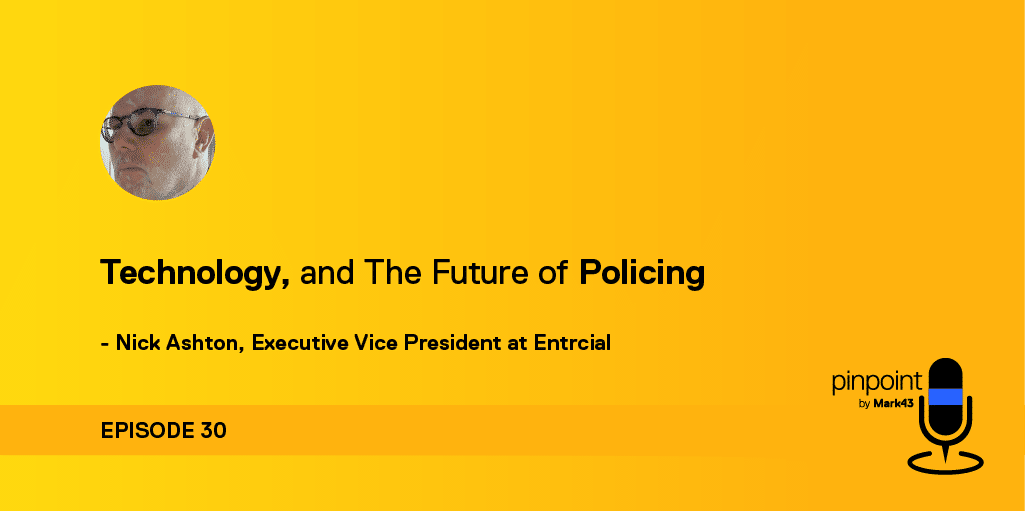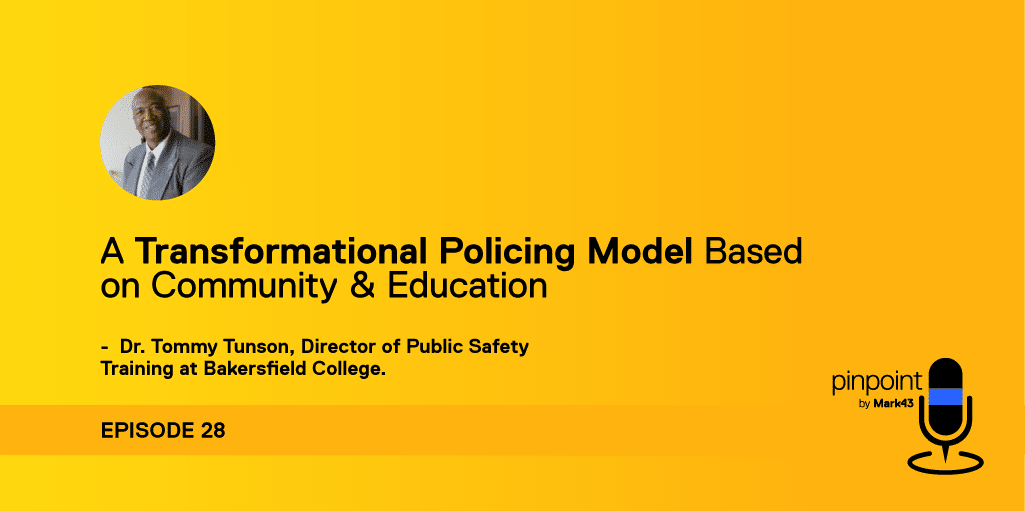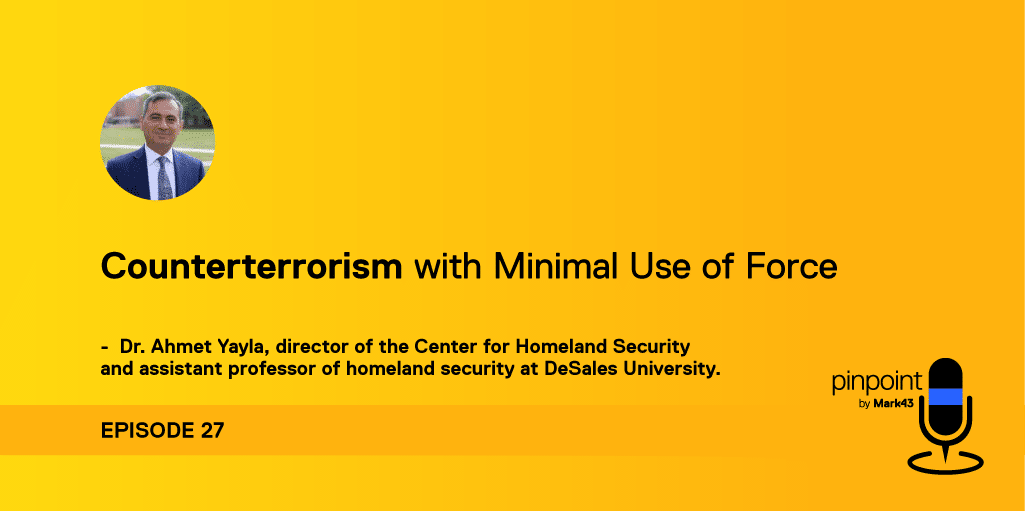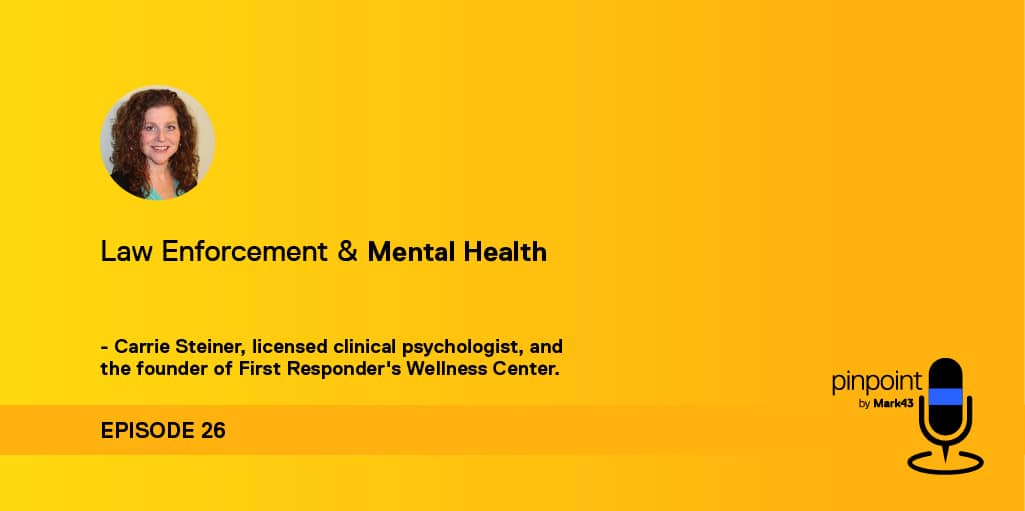
We can all agree that mental health is important.
Today, more than ever, it seems like mental health is being pushed to the foreground in a lot of conversations.
Major companies all over the world are offering their employees subscriptions to mental health resources, counseling, meditation apps, and even providing on-site meditation and mindfulness classes.
It’s clear that mental health is crucial to the workforce.
[popup_trigger id=”1576″ tag=”pinpoint”]
[/popup_trigger]
However, it seems like one industry that has been slow to destigmatize mental health issues, and that is law enforcement.
On this episode of Pinpoint, we sit down with Carrie Steiner. Carrie is a licensed clinical psychologist, and the founder of First Responder’s Wellness Center. We talked all about why law enforcement can be such a traumatic experience, why mental health stigma is slowly fading away in the community, and why treatment is becoming more commonplace.
Policing & PTSD
Most of us think of PTSD as something that happens to soldiers.
You hear stories of people who have bravely fought in war zones and come home with terrible experiences. They can’t sleep, they’re nervous, and the world seems to be ill-equipped to care for them.
But PTSD isn’t reserved for those in the military.
PTSD (Post-Traumatic-Stress-Disorder) is just that. It is the result of a traumatic experience, or set of experiences.
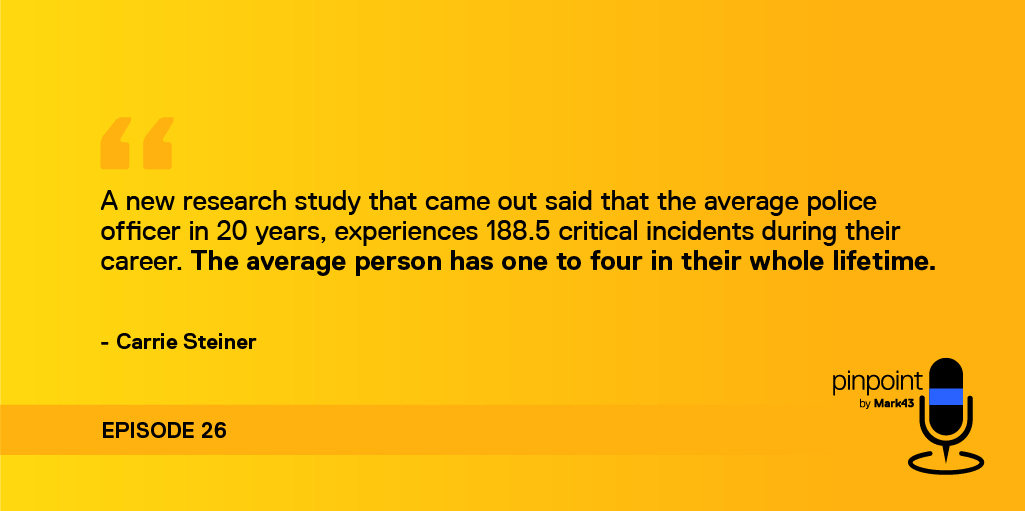
If a law enforcement officer is roughly 47 times more likely to encounter critical or traumatic incidents in their lives, it should come as no surprise that there are more and more officers who are starting to exhibit symptoms of PTSD.
Those symptoms have likely always been there, it’s just that they’re finally starting to be seen for what they are. Not “stresses of the job” but “the result of traumatic experiences.”
We know that every single time you’re exposed to trauma, it increases the chance of developing a mental illness or having physical health problems or issues.
But in the police community, there’s still some stigma around mental health.
Mental Health & The Police Community
What drove Carrie to start her organization was, among other things, an interaction she had on the phone with a police officer.
They said they were feeling suicidal and they wanted a referral for a psychologist. Somebody they could go talk to. Someone they could see to help them work through what they were dealing with.
But at the time, if an officer would say they were suicidal, that meant they would lose their firearms identification card (FOID.) And if they lost that, they couldn’t work as a police officer.
So officers were faced with a choice: Get help and risk their job, or shove their issues down and let them fester.
A big reason why so many officers are so hesitant to get help is because they are still worried about things like that. Losing their jobs, or at least, losing the position that they were in if they get help.
Most people, if asked if they’d go to therapy if it meant they’d lose their job, would obviously say that’s something they’d prefer not to do.
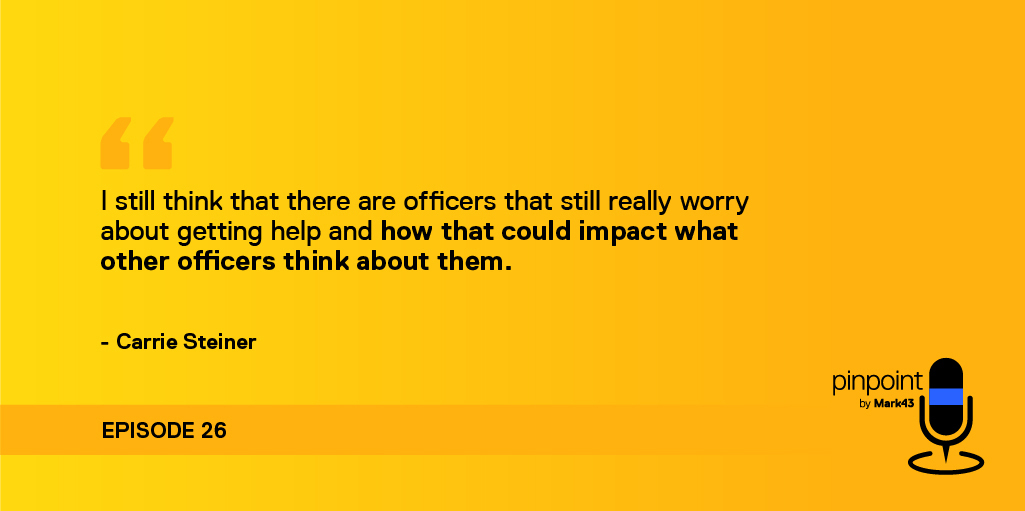
Why Getting Help is a Good Thing
For a lot of officers, they worry that getting help will impact what their fellow officers will think of them, and more immediately, what will their partners think?
After all, would you want a partner that you knew was suffering from anxiety? PTSD? Suicidal thoughts? Most people would say no. They’d prefer someone who is stable and is going to have their backs if and when things get tough.
But Carrie approaches it from a different angle.
She asks, would you rather have a partner that feels suicidal and isn’t getting any help? Or one that is actively seeking treatment and building skills to help them deal with those dark thoughts that are a direct result of the work they do every day?
Mental health impacts us all, no matter what career we choose. But it can be especially important for someone like a police officer who experiences a disproportionate amount of traumatic incidents through their lives.
This blog post was taken from a Pinpoint podcast interview with Carrie Steiner from First Responder’s Wellness Center.
For every episode, click here. Or, for Apple Podcasts users, you can also use this link.



